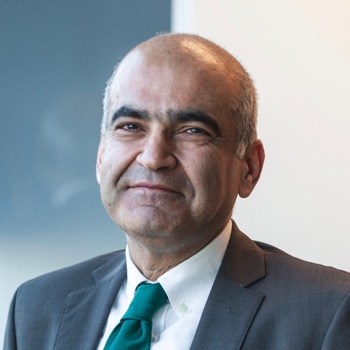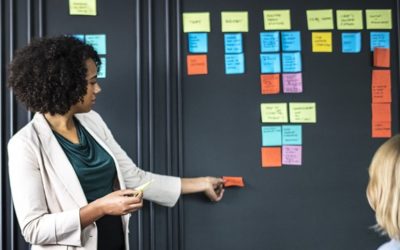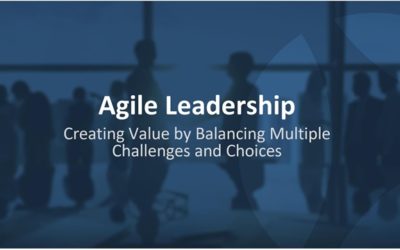
How can leaders build workforce resilience when the world goes back to a new normal? And how can they manage employee anxieties during and after the Coronavirus pandemic?
We are experiencing unchartered waters. Most of us have had to leave our comfort zones in our private and professional spheres. While we are all struggling to find a new balance, as entrepreneurs, leaders and managers we need to be prepared for what could emerge after this crisis has ended and move towards a new normalcy in our professional sphere.
Some experts have warned that there will be a pandemic of anxiety, once this crisis is over.
So, what can we expect when our employees return to work in due course? How do we reinstate the trust of our employees to come back to their workplace after having been told to isolate for weeks or months?
Addressing employee anxieties after COVID-19 isolation
Experts believe that we would all have to go back to work, while the virus is still killing our fellow citizens, no matter how long the isolation period will last.
Psychologically, we are all still in a managing mode – the response to a crisis that compels us to manage various fears and concerns. In such a crisis, there is also a sense of solidarity that helps individuals to cope with the circumstances. However, once we are asked to regain a certain normalcy, a lot of these fears will come out and affect our well-being.
So, we can be sure that our employees and associates will be anxious, not just about the threat of being outside their homes, but also due to the concerns that had been suppressed during the managing mode. Our failure to address such anxieties will certainly lead to additional anger, de-motivation, reduced productivity, absenteeism and potential conflicts in our workplace.
How leaders can build post-pandemic workforce resilience
- Lead by example: Leaders and managers need to stay calm and show personal resilience in light of the ongoing crisis.
- Show a clear way forward: Readdress vision and mission and show employees how they fit in and how they can contribute to this long-term goal. This gives them hope and reminds them of the bigger picture.
- Have a plan: What happens when ‘normal’ work starts again? What happens in the case of another shutdown or public health guidelines change again? And what if your employees or their family members get sick? Present a clear action plan of how to deal with the situation and make it accessible. This shows that you are thinking ahead and gives your employees a feeling of security.
- Collectively reduce risks: Make collective decisions about how the company can reduce the risks of the ongoing crisis. This could include hygienic and environmental corrections in the office space.
- Create remote work guidelines: Put in place relevant rules about who can work from home and under what circumstances.
- Communicate consistently: Stay informed and show that you are staying informed. Communicate credible and consistent messages and make sure to use effective tools and formats.
- Show and practice empathy: Actively engage your employees to hear their concerns. This also means that you may need to review and possibly readjust expectations for both sides.
- Strengthen team communication: Encourage greater communication among staff about their emotions and be open. In the words of one expert: “Some will feel like victims, some like survivors. Encourage them to help each other… A best way to overcome anxiety is to help others.”
The core message is that we should not disregard the psychological layers that will determine our professional behaviors in the aftermath of this crisis. Depending on their individual experiences, our employees will feel anger, betrayal and anxiety and it is best to deal with those issues rather than to pretend that nothing has changed. There will be the need for a different type of change management – this time a psychological one.
VGL Forum
Join our virtual VGL Forum, an open space online to discuss leadership issues with experts, share solutions and enhance leadership skills across industries.

Bijan is a veteran strategy advisor and has over 25 years of strategic consulting experience with global companies. He is the Managing Partner of Eunepa. LinkedIn

Bijan is a veteran strategy advisor and has over 25 years of strategic consulting experience with global companies. He is the Managing Partner of Eunepa. LinkedIn
Recent Posts
Stop the Blame Game: How to Deal with Mistakes Productively
Where people work, mistakes can and do happen. How can we foster a productive error management culture?
How to Create a Learning Culture as Your Competitive Advantage
In the middle of the digital revolution and a major demographic shift, a learning culture is a must-have.
Podcast: Agile Leadership – Is It More Than a Fad?
How do you create value by balancing multiple challenges and choices?
Stay updated with VGL Forums and workshops!

Vienna Global Leaders is a platform by EUNEPA dedicated to developing and connecting managers and leaders in a complex world.
Vienna Global Leaders by EUNEPA
Wiedner Hauptstrasse 142 / Top 5, 1050 Vienna, Austria
T: +43 1 996 2078
E: info@viennagloballeaders.com



0 Comments